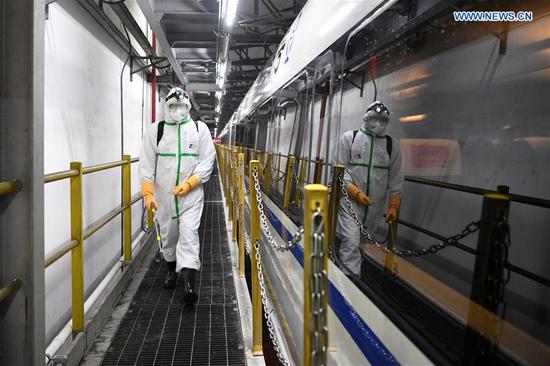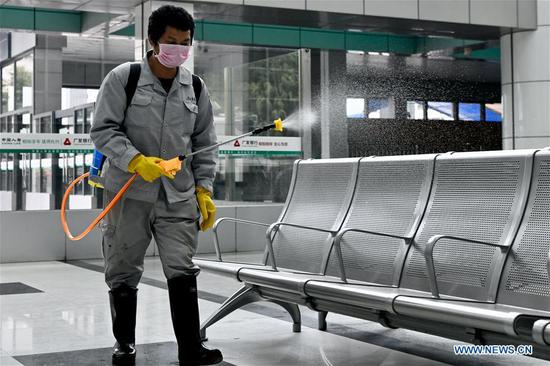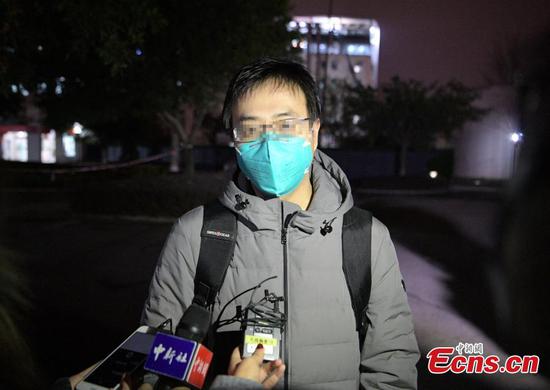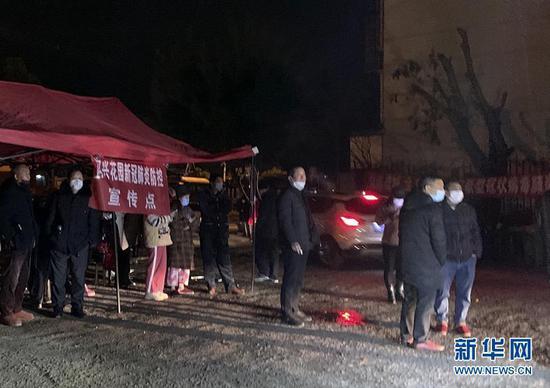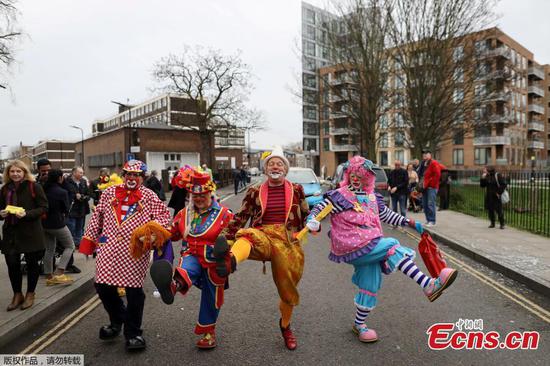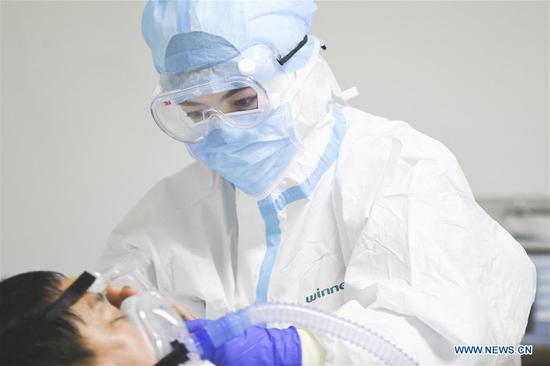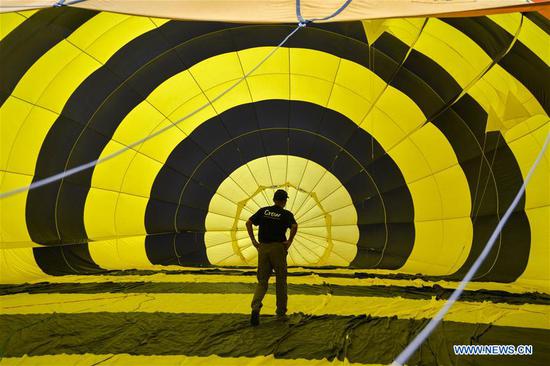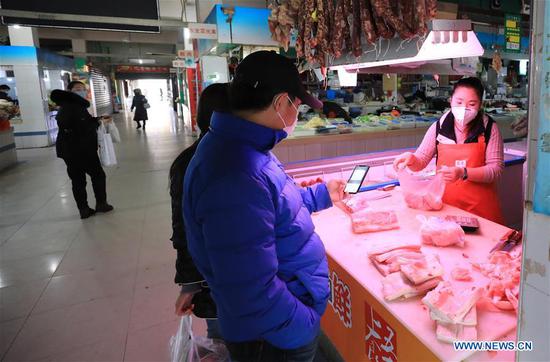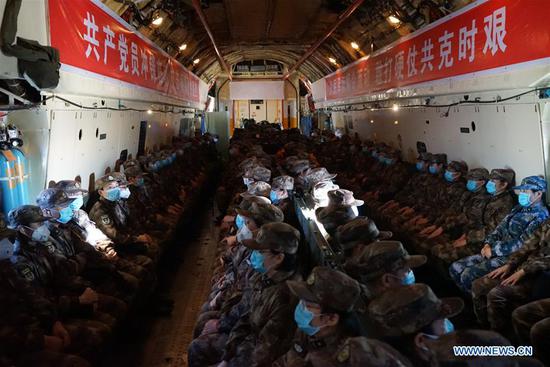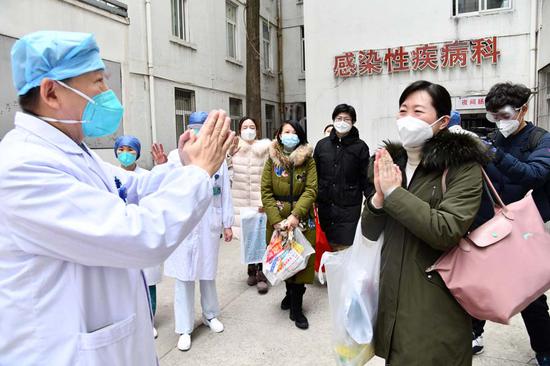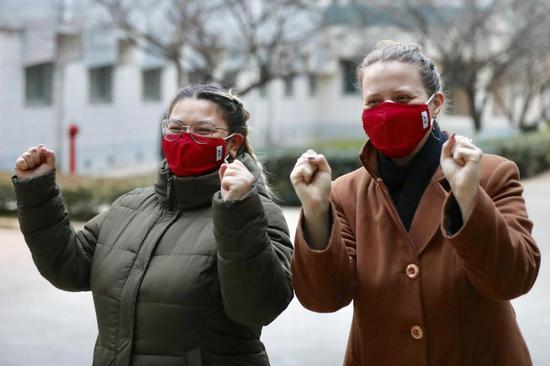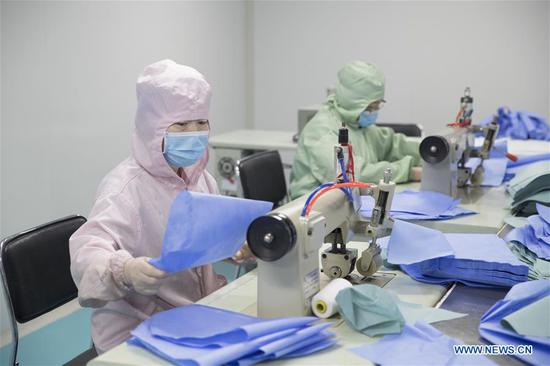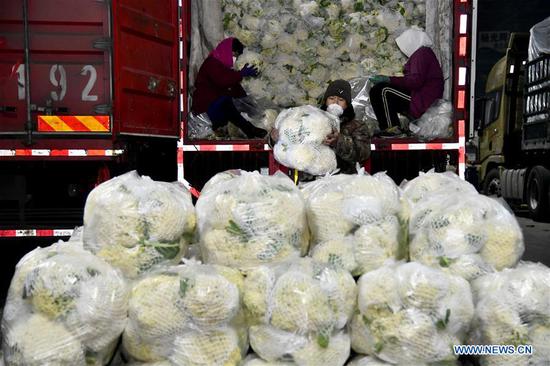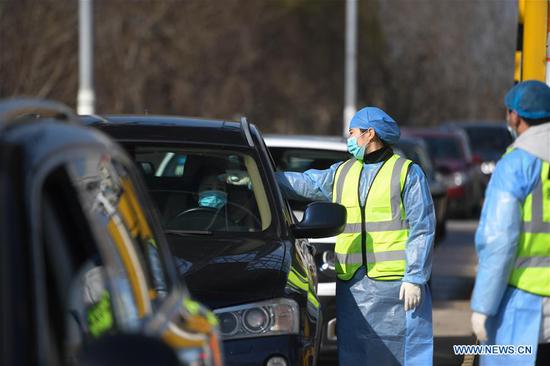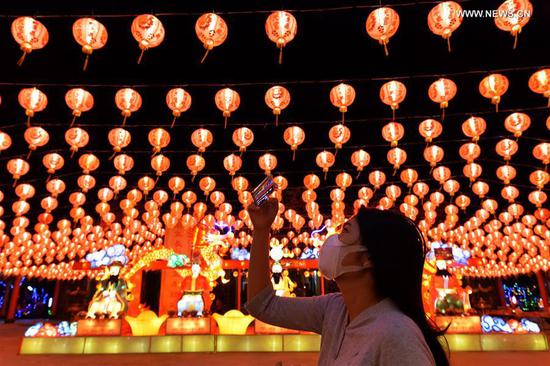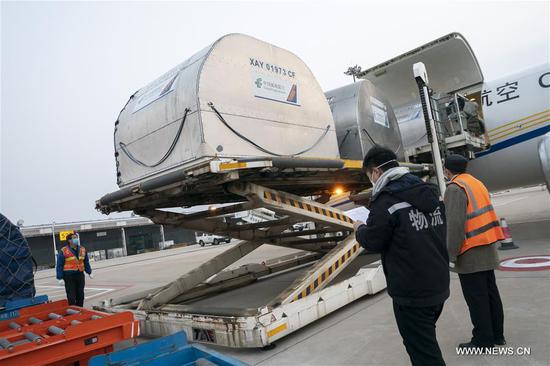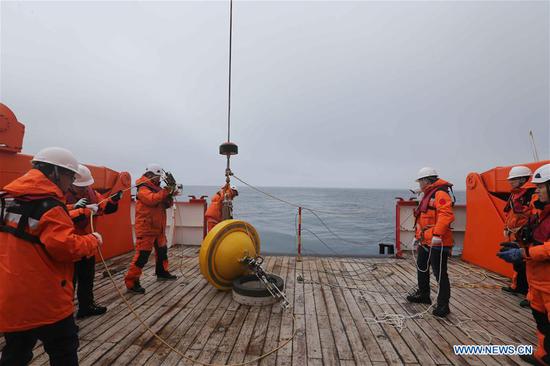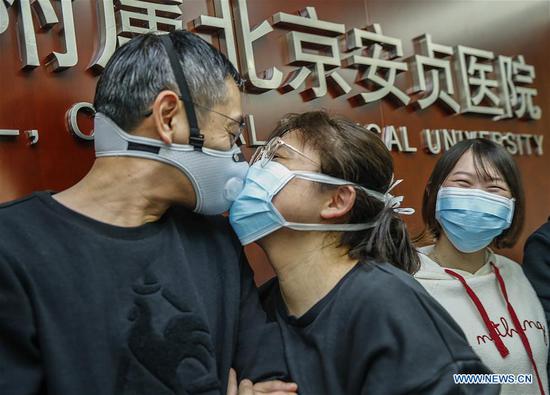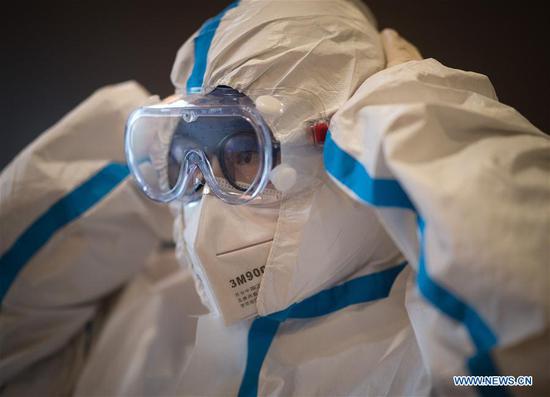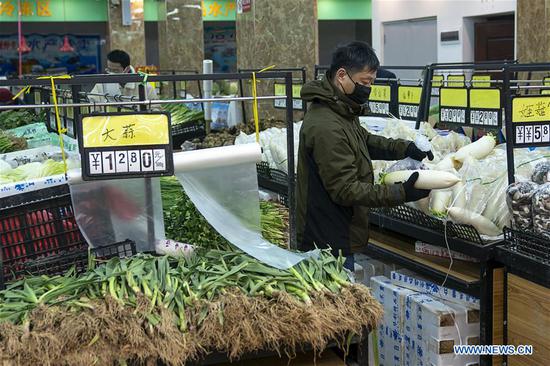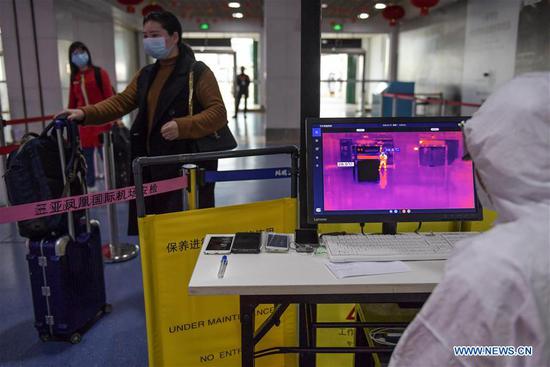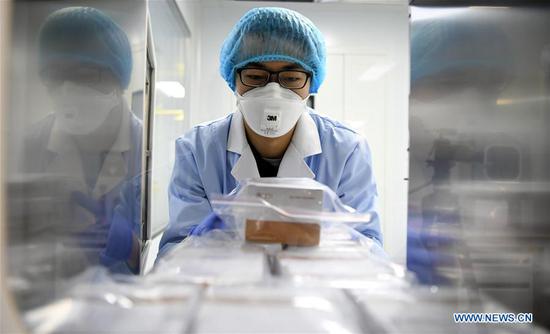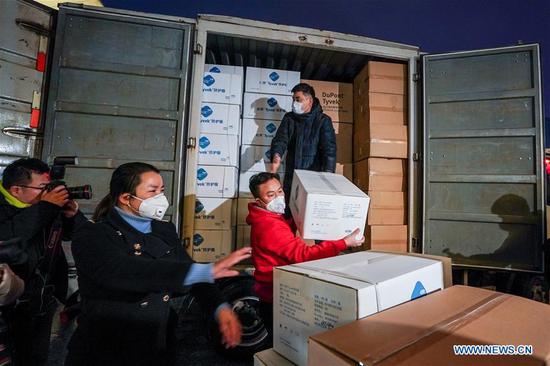The U.S. travel ban related to the coronavirus on foreign nationals who have recently been to China caused a scramble for last-minute flights Sunday and has created uncertainty over educational exchanges.
Chinese businessman Jackson Zhou, 27, boarded a flight from Beijing to Seattle, Washington. Scheduled to arrive at the Seattle-Tacoma International Airport on Sunday morning, he was among the last group of Chinese citizens to be allowed entry into the United States before a temporary travel ban went into effect Sunday at 5 pm ET.
U.S. President Donald Trump decided to temporarily suspend "the entry into the United States of foreign nationals who pose a risk of transmitting the 2019 novel coronavirus", U.S. Secretary of Health and Human Services Alex Azar announced Friday. He also said that the coronavirus presents a "public emergency in the United States".
Under the restrictions, foreign nationals other than immediate family of American citizens and permanent residents who have traveled in China within the last 14 days will be denied entry into the U.S..
Returning American citizens who have been in Hubei province in the previous two weeks will be subject to up to 14 days of mandatory quarantine, while those who have been in the rest of the Chinese mainland will undergo "proactive entry health screening at a select number of ports of entry and up to 14 days of monitored self-quarantine", said Azar.
Wuhan, the capital city of Central China's Hubei province, is the epicenter of the virus.
The outbreak is also affecting visas. The U.S. embassy and consulates in China are canceling immigrant and nonimmigrant visa appointments for the week of Feb 3, the agencies said on their websites, adding that they "are unable to provide a specific date" on resuming service.
The U.S. action came a day after the World Health Organization (WHO) declared the novel coronavirus outbreak a public health emergency of international concern, though the WHO advised countries not to impose travel or trade restrictions.
The U.S. decision affected many Chinese citizens who work in the U.S. but went home for the Lunar New Year vacation.
Zhou, who works at a California startup, was among many who made a last-minute change in plans. He originally planned to return to the U.S. in late February, but decided to cancel his flight and rebook one for Sunday, as he saw the U.S. announcement Saturday morning.
"I was lucky enough to get a ticket," he said. "Tickets were running out in any minute as I was searching, and the prices were surging" to several thousand dollars for a one-way trip, said Zhou, who settled for a more expensive business class ticket.
"I was quite anxious the following day, worrying the flight could be canceled anytime. It wasn't until I boarded the plane did I feel relieved," he said.
Zhou's flight was carried by Delta Airlines, one of three U.S. airlines that is halting flights to the Chinese mainland.
Ctrip, China's major flight and hotel booking platform, posted a note on its search page warning travelers about the travel restrictions.
Two groups hit hard by the U.S. travel restriction are visiting scholars and exchange students.
"It's just about time for visiting scholars and PhD students who participate in China-U.S. joint programs to leave for the U.S.," said Li, an insurance agent for Chinese visiting scholars and students, who declined to give his first name.
Many of the scholars have not only bought plane tickets, but have made rent deposits and paid insurance fees as well. Such expenses could be non-refundable, said Li, especially the rent deposits, which can cost a couple of thousand dollars.
"Some of them are in urgent need (like doing research or experiments) to enter the U.S. and cannot wait for the future development of the outbreak and the restrictions," said Li. He told China Daily that many are considering other choices, including rerouting to a third country for two weeks before flying to the states.
It is, however, also a risky option, he said, as it's uncertain whether the U.S. government and customs would recognize such attempts.
The Harbin Institute of Technology, in Northeast China's Heilongjiang province, has halted all exchange programs set to take place during the winter break and following spring semester.
Li, who runs a WeChat account Visiting-USA and runs an online community of more than 2,000 scholars, estimated the travel restrictions will affect more than 1,000 U.S.-bound students and scholars.
"If the current situation lengthens, it is definitely affecting people's work, study and research plans. Even worse, it may affect the overall academic exchange between China and the U.S.," he said.
Many in the U.S. have had to cancel trips to China.
"I was lucky to get a ticket for a flight that will take me from Washington to Beijing this afternoon," said Zhou, who gave only his surname before he boarded a plane Sunday.
"I had thought few would show up; however, staff at the airport told me there are already more than 200 passengers for the flight, most of them changing their tickets just to catch the last flight."









